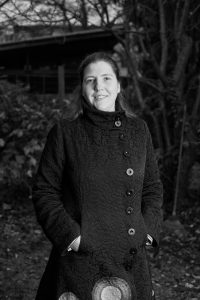Cornelia Panjas

Shortbio
- 1987 / geboren in Berlin
- 2007 / Abitur in Berlin
- 2007–2010 / Bachelor-Studium an der BTU Cottbus und der Technischen Universität Berlin im Fach Kultur und Technik. Thema der Bachelorarbeit: Das schwierige Erbe deutscher Raketenforschung und deren museale Aufarbeitung in Peenemünde.
- 2010–2013 / Master-Studium an der BTU Cottbus im Fach World Heritage Studies. Thema der Masterarbeit: The Role of Objects in Transport Museums.
Contact
Bauhaus-Universität Weimar
Fakultät Architektur und Urbanistik
DFG-Graduiertenkolleg 2227 “Identität und Erbe”
D-99421 Weimar
Sitz: Amalienstr. 13
D-99421 Weimar
cornelia.wilke[at]uni-weimar.de
Continuity and Change in the Exhibitions of the MfS Prisons. An exhibition discourse through 20 years of reappraisal.
The Federal Republic of Germany has set itself the goal of coming to terms with the history of the National Socialist and Communist dictatorships. It is an unpleasant legacy, but the Federal Republic is facing up to it. After the collapse of SED rule, the German Bundestag set up an Enquete Commission to investigate the history and consequences of the SED dictatorship. One consequence of this work is the federal government’s memorial concept. The federal government’s memorial concept enabled many places of suffering to become memorials. Memorials are meant to remember the horrors of dictatorships, they honor their victims and admonish future generations. The dissertation project refers to the analysis of the exhibitions in four former prisons of the Ministry for State Security (MfS). By which means and which topics do the memorials convey the topics of political repression and SED dictatorship? Which topics are integrated and which are perhaps omitted? How is the memory of the victims dealt with? The memorials in Germany are an important part of our culture of remembrance. In the coming years, there will be fewer and fewer contemporary witnesses who will be able to tell future generations about their suffering under the dictatorship. The task of the memorial sites is to preserve and convey this knowledge. The examination of the exhibitions is necessary because they, too, tell a constructed story.